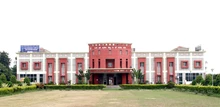
Union Minister For Jal Shakti, Gajendra Singh Shekhawat, released the report today on the progress achieved under the Jal Jeevan Mission: Swachh Jal se Suraksha (SJSS) Campaign. The campaign took place from 2nd October 2022 to 31st March 2023, with the aim of encouraging states and union territories (UTs) to prioritize water quality monitoring and surveillance activities as part of the Jal Jeevan Mission (JJM). The provision of safe water has been a crucial aspect of the mission.
During the campaign, several activities were carried out, including testing of Public Water Supply (PWS) sources in all villages for chemical and bacteriological parameters after the monsoon season. Additionally, water quality testing was conducted at the household level in villages, as well as in schools and Anganwadi Centers. The campaign also focused on taking remedial action for contaminated samples and training women in water quality testing using Field Testing Kits (FTK) or H2S vials at the village level.
As a result of the dedicated efforts made by states and UTs in water quality monitoring and surveillance, the following overall progress was achieved:
-
Water quality testing was conducted in 5.39 lakh (89.69%) villages for chemical contamination and in 4.47 lakh (74.46%) villages for bacteriological contamination after the monsoon season.
-
Drinking water samples were tested in 6.58 lakh (67.63%) schools and 7.16 lakh (67.43%) Anganwadi Centers.
-
A total of 21.80 lakh women were trained in water quality testing using Field Testing Kits (FTKs) from 4.59 lakh (76.41%) villages.
-
Remedial action was taken for 90.34% of the contaminated samples reported.
-
The performance of states and UTs was also assessed during the campaign. Tamil Nadu, Andhra Pradesh, Karnataka, and Madhya Pradesh emerged as the best-performing states.
Access to assured and safe drinking water is considered a basic life necessity. The campaign aimed to ensure drinking water quality and create awareness among representatives of Panchayati Raj institutions and rural communities regarding the quality of drinking water in their respective villages. It also focused on water quality issues, waterborne diseases and health impacts, and discouraging the use of water from sources affected by poor quality.
The campaign's desired outcome was to encourage widespread participation at the village, district, and state levels in water quality testing. It aimed to build confidence and raise awareness among people about the quality of water supplied through piped water systems.
The PHE/RWS departments of states and UTs, serving as the nodal department, actively involved all stakeholders, including Gram Panchayats and their sub-committees, as well as the local community, in conducting water quality monitoring, surveillance, and awareness activities.











